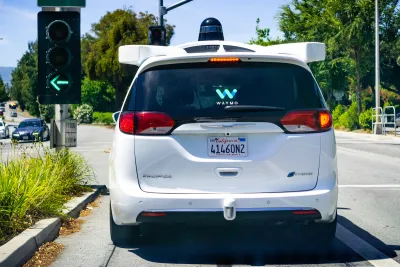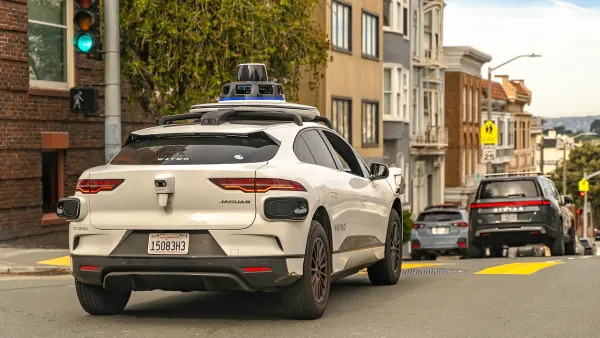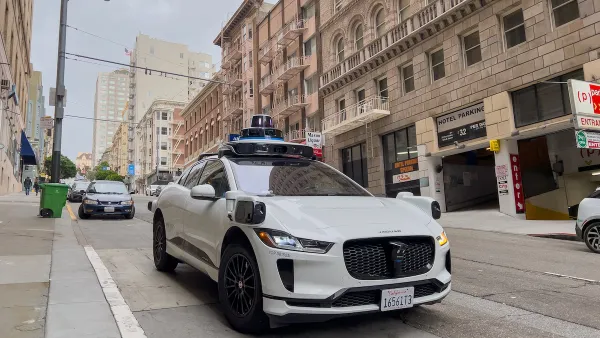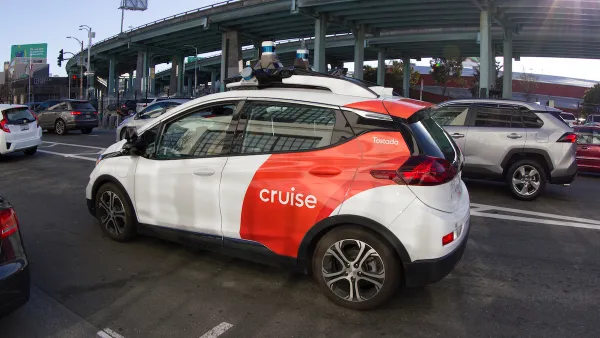Drivers for Uber and Lyft in San Francisco express their concerns and advice for self-driving taxi services.

In an interview for WIRED with 10 ride-hailing app drivers in San Francisco, Aarian Marshall and Caitlin Harrington gathered some advice to the newly minted robot drivers set to expand their presence on city streets. “Some was friendly, some not at all.”
For one, drivers say it’s sometimes necessary to ‘fudge’ the rules of the road, which robotaxis are programmed not to do (at least, not on purpose). “Rideshare passengers are spoiled,” said one driver. And having passengers run to the middle of the street to get picked up may not be safe. “When forced to choose between briefly blocking a driveway (technically a ticketable offense) and loading passengers in the middle of traffic, he’ll sometimes opt for the former.”
Drivers also wondered how autonomous cars will deal with situations when inebriated passengers soil the upholstery or fall asleep in the vehicle. “Cruise has a cleaning fee policy and charges up to $150 for ‘extensive liquid and smelly messes,’ including vomit. Waymo spokesperson Ilina says (human) workers use cameras inside the company's vehicles to determine if a cleaning is needed before or after rides, and that robotaxis are always cleaned when they return to home base for charging or maintenance.”
Other concerns include the unpredictability of city streets and the need for customer service. It remains to be seen if self-driving cars will be able to adapt to real city streets or if their limitations will render them less effective than human drivers. And while some drivers worry about the loss of income, others are looking for the next opportunity. “Some who know this is coming simply shrug—several ride-hail drivers told WIRED that they think the jobs have become too crappy to fight for, because earnings have declined over the years and there’s no reward for sticking around.”
FULL STORY: Uber and Lyft Drivers Have Some Advice for Autonomous Vehicles Set to Swarm the Streets

Analysis: Cybertruck Fatality Rate Far Exceeds That of Ford Pinto
The Tesla Cybertruck was recalled seven times last year.

National Parks Layoffs Will Cause Communities to Lose Billions
Thousands of essential park workers were laid off this week, just before the busy spring break season.

Retro-silient?: America’s First “Eco-burb,” The Woodlands Turns 50
A master-planned community north of Houston offers lessons on green infrastructure and resilient design, but falls short of its founder’s lofty affordability and walkability goals.

Test News Post 1
This is a summary

Analysis: Cybertruck Fatality Rate Far Exceeds That of Ford Pinto
The Tesla Cybertruck was recalled seven times last year.

Test News Headline 46
Test for the image on the front page.
Urban Design for Planners 1: Software Tools
This six-course series explores essential urban design concepts using open source software and equips planners with the tools they need to participate fully in the urban design process.
Planning for Universal Design
Learn the tools for implementing Universal Design in planning regulations.
EMC Planning Group, Inc.
Planetizen
Planetizen
Mpact (formerly Rail~Volution)
Great Falls Development Authority, Inc.
HUDs Office of Policy Development and Research
NYU Wagner Graduate School of Public Service




























